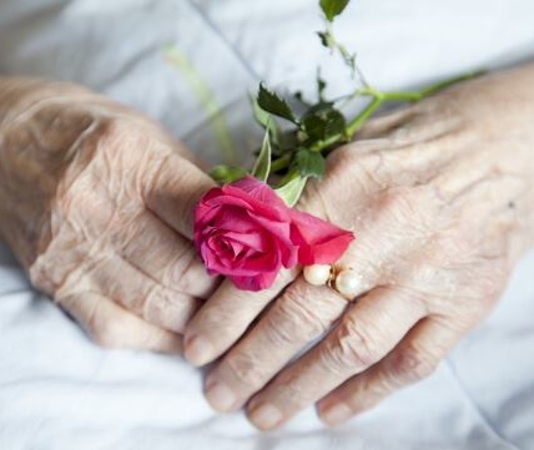For some people, caring for others is a welcome opportunity later in life. In this way, they can stay engaged as they connect with other people in a meaningful way.
“At least half of our volunteers are over the age of 65,” said Ellie Hollander, Meals on Wheels Association of America President and CEO. “There was a time when this was a larger percentage, but people are working longer.”
Delivering meals is just the beginning: “The warm smile and safety check that accompanies meal delivery helps to keep over two and a half million seniors a year not only healthy and independent, but also happier living in their own homes,” she said. “Senior volunteers have the ability to empathize with many clients since they fall in the same age bracket and sometimes deal with the same day-to-day issues.”
Why Caregiving Is Ageless
Jim Wrazen, a 67-year old Meals on Wheels volunteers in Buffalo, New York, has been delivering meals for eight years and finds it rewarding. “Because I’m retired and I don’t work part-time, it gives me something to do,” he said. “People want their loved ones to have contact during the day. It’s important for them to have someone to talk to and to have someone checking on them.”
And not everyone who needs help is a senior—Mr. Wrazen deliver meals to one woman in her 40s living with multiple sclerosis.
The Benefits of Being Older and Being a Caregiver
Volunteering isn’t the only option for people in this age group and some find a new career as caregivers.
Andy Preston, 70, works for Homewatch CareGivers in North Carolina. He left his career as a biomedical engineer to care for his own parents, then was drawn to caring for others too. In a few years, he became an award-winning caregiver.
“It’s emotionally satisfying work for me,” he said. “I can work fairly independently most of the time and I like getting to know the people I care for.”
Our experts have discovered the advantages to seniors who decide to become caregivers:
- confidence and ability to communicate across generational lines
- reliability
- ability to relate about historical events
- a tendency to be more engaged
- more responsive, less reactive
- greater understanding about the joys and challenges of aging
Whether helping out a friend, neighbor, committing to volunteering or working part-time as a caregiver, elders can provide wonderful service to those in need in their local communities.
“It’s a nice thing to do, it doesn’t take much time, and it’s worthwhile,” said Mr. Wrazen.





